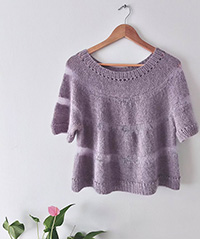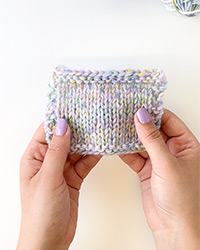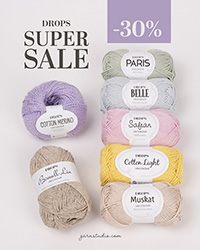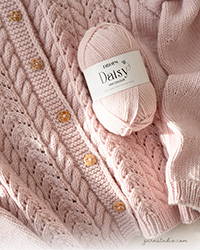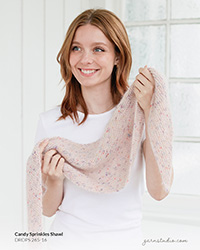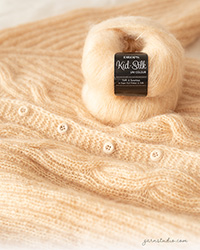
Sustainability
As a company we wish to support sustainability and protect the environment in everything we do as well as to respect animal and human rights. Through traceability in both the origin and the production of our products, we have taken a step in the direction we want to go. We are well aware of all the difficulties we will face and admit that there will always be room for improvement, but we will do everything we can to measure and limit our environmental footprint and increase our sustainability. We want to be a sustainable company, taking responsibility and always working for further developments within these areas. .
Partners
DROPS Design has made a list of commitments (Code of Conduct) to be followed by suppliers, which incorporate international standards for human rights, employment rights, environmental protection, animal welfare and anti-corruption. These principals are based on the United Nations and International Labour Organisation’s conventions and are our minimum standard. All our suppliers have signed and committed to follow our Code of Conduct.
Our supplies mainly come from producers within the European market which, in the same way as Norway (where our main office and warehouse are situated), shall follow the EU’s taxonomy for a sustainable economy. They also, of course, follow the EU’s regulations regarding human rights, animal welfare and sustainability. We have deliveries from Peru, where our alpaca yarn comes from, and they have very similar regulations to the EU regarding these issues and they work actively with social responsibility. Our needles and crochet hooks come from India, where our supplier is actively working for their employee's welfare, safety, equal rights and education. They have documented their work for the environment and for sustainability, including among other things energy saving measures and water recycling.
We cooperate with a few larger, well recognized producers that we know well and have worked with for many years. We are in constant contact with them regarding their current and upcoming certifications and work for sustainability, which they are constantly working on. We have always aimed to build long-term supplier relationships, to achieve the best possible continuity in our improvements within this area.
You can read our full Code of Conduct here.
Raw materials
An issue which is important to all our consumers is traceability, knowing where our raw materials come from. To provide as much transparency as possible we have chosen to include both the countries of origin and countries of production for all our yarns on our colour charts. Our assortments are for the most part made from natural fibres which are biodegradable. Some of the yarns, for example sock yarns, have added polyamide for extra strength, so the garments will last longer.
We focus on wool from South America where it is guaranteed that the sheep are not subject to mulesing. We have chosen not to source our wool from Australia because we know mulesing occurs there and we avoid controversial fibres, such as angora, because of the way the animals are treated. Our cotton comes from Turkey, Egypt, Pakistan and India. Polyamides come from Italy and Germany.
The silk we use is Mulberry Silk Slivers from China which is confirmed cruelty-free from the producer, meaning the silk is produced without either hurting or killing the silkworms. The fibres are made solely from silk waste and cocoons, from which the moths have already flown.
Some of our yarns have been superwash-treated, which means the wool goes through a chlorine process to break down the small scales of wool fibre, after which it is coated with a very thin layer of Hercosett. This allows the wool fibres to be resistant to shrinkage and felting. The amount of Hercosett is so small that the composition of the fibres is not affected. All the yarns which are superwash-treated are OEKO-TEX® Standard 100 certified and produced in the EU, and thus comply with EU’s legislation for emissions and environmental impact.
OEKO-TEX® Standard 100 is a certification which is issued by a global association of independent research and testing institutes, for security in the production and sustainability of the textile industry. Oeko-Tex® was founded in 1992 and is used for the testing and certification of textile products. If a product has this certification, we can be sure that each component within the product has been tested for harmful substances and is therefore safe for your health. OEKO-TEX® Standard 100 have 4 product classes, with the first product class covering products for new-born babies and therefore with the strictest requirements and limits. Our priority is suppliers with OEKO-TEX® Standard 100 certification.
The production of DROPS products meets the requirements of the REACH regulation, and some of our products are in addition ZDHC certified. REACH involves limiting the use of chemical substances and was introduced in 2007 to protect human health and the environment from the harmful effects of chemical substances.
DROPS Design’s environmental work
We are constantly working to reduce our environmental footprint. DROPS Design was the first in the industry to publish free on-line patterns to reduce the use of paper. A later choice was to stop printing our patterns in catalogues and also offer these on-line. This reduces both our use of resources and transport. We do not, and never have, thrown away or destroyed yarn or other products. Our cardboard boxes received from our suppliers are used to package and send products to our customers and the same applies to wooden pallets. We only use electric lorries and our transporters have a documented environmental profile and work to reduce their emissions. In 2024, we took further steps and moved into one of Oslo’s most modern office buildings, certified with BREEAM-NOR Excellent, and our new warehouse facility is classified with the highest energy rating (”Mørkegrønn A”), meaning that both the office and warehouse meet high standards for energy efficiency and sustainability.
DIY and slowfashion
Slow fashion and sustainable fashion are a backlash to everything unhealthy the fashion industry today stands for. Consuming as much and as fast as we presently do creates problems both due to production and, later, the amount of wastage from the clothes we no longer want. Slow fashion is an approach to fashion where reflection and awareness are in focus and where quality is more important than quantity. Where we prioritize fewer and finer garments (without a higher price-tag, but with an increased value of the garment you are wearing). Slow fashion also involves the rediscovery of the creativity, enjoyment and craftsmanship which fashion and clothes should really be about. Something we sadly all too often forget in today’s consumer culture. Huge amounts of clothes are thrown away by the fashion industry when new collections arrive at the shops, something we avoid when we knit or crochet the clothes we want. Yarn can be used to make so many things and will never go out of fashion in the way collections from the fashion industry do.
By making your own clothes you get a different understanding of the time and resources involved when something is created. Thought lies behind every garment and satisfaction from making something with your own hands. This also means that you take better care of the garments and use them for many years. DROPS Design encourages both the joy of creation and creativity and the possibility to change and adjust existing homemade clothes to increase their longevity.
Transparency Act (Åpenhetsloven)
Norway's Transparency Act (Åpenhetsloven) is intended to promote companies' respect for fundamental human rights and decent working conditions when producing goods and providing services. Furthermore, the act is intended to ensure the public's access to information about how companies handle negative consequences. Our report will be published in line with the requirements of Norway's Transparency Act (Åpenhetsloven) on our website, in Norwegian, for the first time on June 30, 2023.







